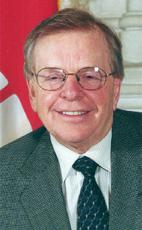Mr. Speaker, I have the honour to present, in both official languages, the fourth report of the Standing Committee on Government Operations on Bill C-82, an act to amend the Royal Canadian Mint Act, without amendment.
I would like to add a few more words on behalf of the committee. In the deliberations on Bill C-82, an act to amend the Royal Canadian Mint Act, the Standing Committee on Government Operations heard two separate messages from both government and industry on the introduction of the new $2 coin.
First, the Government of Canada is introducing the new $2 coin because of the savings it will generate for the taxpayers. Within 20 years more than $254 million will be saved for Canadians with the introduction of the coin. Further, the government is expected to accrue an additional $449 million in seigniorage to the consolidated revenue fund within 18 months of the issue. The savings for taxpayers are significant indeed.
We also heard a second message loud and clear from industry, small and medium sized businesses in particular. Although industry supports in principle the introduction of the new coin because of the associated savings, business has expressed serious concern over the timing of the move. The affected businesses and associations clearly stated that the 12-month notice is not adequate time to prepare for this adjustment.
Given the fact that a delay in the introduction of the coin would cost the Government of Canada an estimated $109 million in the fiscal year 1995-96, the committee recognizes the need for the Government of Canada to balance both the requirements of industry with those of fiscal responsibility and budgetary prudence.
The committee recommends that the Royal Canadian Mint-

